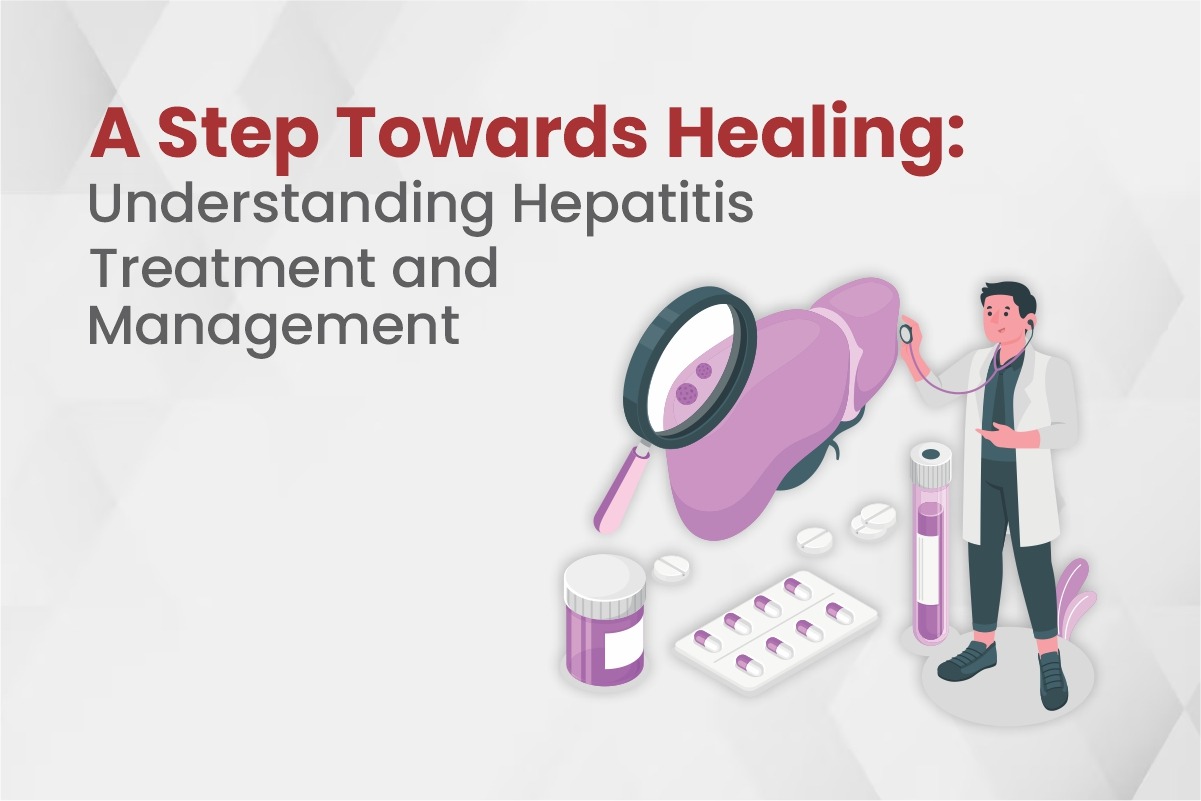A Step Towards Healing: Understanding Hepatitis Treatment and Management
Hepatitis, a viral infection that affects the liver, can have severe consequences if left untreated. While there is no one-size-fits-all cure for hepatitis, significant progress has been made in the medical field to effectively manage and treat the disease. In this blog, we will explore the different types of hepatitis and the available treatment options that have improved the prognosis and quality of life for many affected individuals.
Types of Hepatitis and Their Treatments:
- Hepatitis A: Hepatitis A is usually a short-term, acute infection and does not require specific antiviral treatment. Most people recover fully on their own with supportive care, including adequate rest, hydration, and a balanced diet. Vaccination against Hepatitis A is highly effective and recommended for long-term prevention.
- Hepatitis B: Chronic Hepatitis B requires careful management to prevent complications such as liver cirrhosis and liver cancer. The primary treatment for chronic Hepatitis B includes antiviral medications that help suppress viral replication and reduce liver inflammation. Commonly prescribed antiviral drugs include entecavir and tenofovir. Early diagnosis and prompt treatment initiation can lead to better outcomes.
- Hepatitis C: Over the past decade, significant advancements in Hepatitis C treatment have revolutionized the management of this chronic infection. Direct-acting antiviral medications (DAAs) have a high cure rate, often above 95%. DAAs target specific viral enzymes, disrupting the virus’s ability to replicate and allowing the body’s immune system to clear the infection. Treatment duration and medication choice depend on the Hepatitis C genotype and the presence of liver damage.
- Hepatitis D: Hepatitis D is a unique type of hepatitis that only occurs in individuals who are already infected with Hepatitis B. The treatment for Hepatitis D primarily involves managing the Hepatitis B infection, as there is currently no specific antiviral therapy approved for Hepatitis D. Hepatitis B antiviral drugs may be prescribed to suppress both viruses.
- Hepatitis E: Hepatitis E is generally self-limiting and does not require specific antiviral treatment. Supportive care, such as rest, hydration, and proper nutrition, is essential for recovery. However, pregnant women infected with Hepatitis E may require close monitoring, as the infection can be more severe in this population.
Lifestyle Modifications for Hepatitis Management:
Alongside medical treatments, adopting certain lifestyle modifications can significantly improve the outcomes for individuals living with hepatitis:
- Avoid Alcohol: Alcohol consumption can exacerbate liver damage. For individuals with hepatitis, it is crucial to avoid alcohol completely.
- Maintain a Healthy Diet: A well-balanced diet can support liver health. Focus on consuming fruits, vegetables, whole grains, lean proteins, and healthy fats.
- Regular Exercise: Engaging in regular physical activity can help improve overall health and aid in managing hepatitis.
- Get Vaccinated: Vaccination against Hepatitis A and B is essential, especially for those at higher risk of infection.
- Follow Medical Recommendations: Regular medical check-ups and following your healthcare provider’s advice are essential for effective hepatitis management.
Conclusion:
While a definitive cure for all types of hepatitis remains a challenge, medical advancements have made significant strides in managing and treating the disease. Early diagnosis, appropriate medical intervention, and lifestyle modifications are crucial for individuals living with hepatitis to lead healthy and fulfilling lives. Moreover, prevention through vaccination remains the most effective strategy to reduce the burden of hepatitis worldwide. On this World Hepatitis Day, let us reiterate our commitment to spreading awareness about hepatitis prevention, treatment, and care, paving the way for a healthier future.
Dr. Sanjay Kumar
Director – Gastroenterology
Metro Heart Institute with Multispecialty Faridabad
